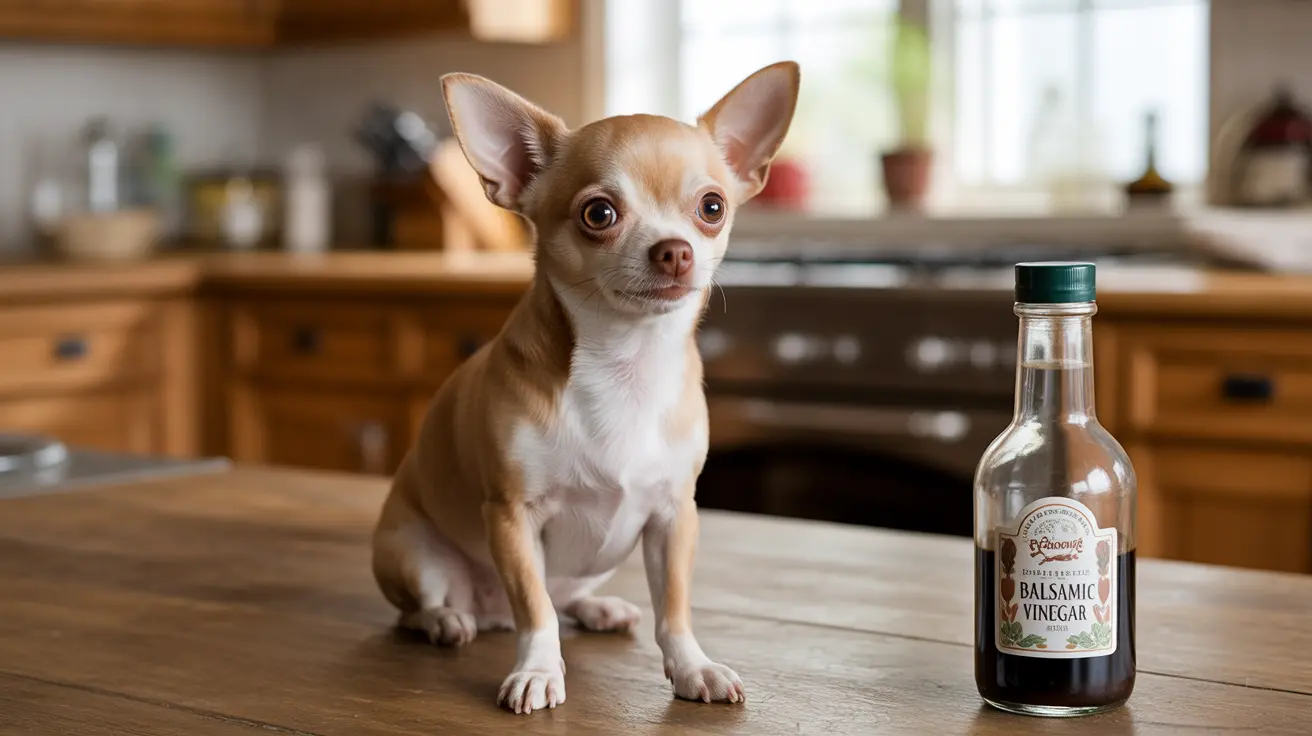Why Balsamic Vinegar Is Dangerous for Dogs
Balsamic vinegar presents several serious health risks to dogs, primarily because it's made from grapes. Grapes and their derivatives are known to be toxic to dogs, potentially causing severe kidney damage or failure. The risk is particularly concerning because there's no known safe amount - even small quantities could be harmful.
Additionally, balsamic vinegar's high acidity (approximately 6%) can cause significant digestive distress in dogs. This acidity level can irritate your dog's stomach lining and lead to various uncomfortable symptoms.
Key Health Risks and Concerns
Grape Toxicity
The grape-based nature of balsamic vinegar makes it inherently dangerous for dogs. Grape toxicity can cause:
- Sudden kidney failure
- Severe digestive upset
- Lethargy and weakness
- Potentially fatal complications
Acidic Content Issues
The high acid content in balsamic vinegar can lead to:
- Stomach irritation and inflammation
- Acid reflux
- Erosion of tooth enamel
- Digestive system complications
Signs Your Dog Has Consumed Balsamic Vinegar
If your dog has ingested balsamic vinegar, watch for these warning signs:
- Vomiting or diarrhea
- Excessive drooling
- Lethargy or depression
- Loss of appetite
- Abdominal pain or discomfort
- Reduced urination or changes in urination patterns
Immediate Actions to Take
If you suspect your dog has consumed balsamic vinegar:
- Contact your veterinarian immediately
- Monitor your dog's behavior and symptoms
- Provide fresh water to help dilute the vinegar
- Do not induce vomiting unless specifically instructed by a veterinarian
- Keep all balsamic vinegar products safely out of reach
Safe Alternatives for Dogs
Instead of balsamic vinegar, consider these dog-safe options:
- Small amounts of plain, cooked vegetables
- Dog-specific condiments and treats
- Apple cider vinegar (in very small, diluted amounts and only with veterinary approval)
- Plain, unseasoned foods
Frequently Asked Questions
Can dogs safely eat balsamic vinegar or is it toxic to them?
No, dogs cannot safely eat balsamic vinegar. It's toxic due to its grape-based ingredients and can cause severe health issues, including kidney failure.
What are the symptoms if my dog accidentally consumes balsamic vinegar?
Symptoms include vomiting, diarrhea, lethargy, excessive drooling, loss of appetite, and potential kidney problems. If you notice these signs, contact your veterinarian immediately.
Why is balsamic vinegar harmful to dogs compared to other vinegars?
Balsamic vinegar is particularly harmful because it's made from grapes, which are toxic to dogs. Additionally, its high acidity level can cause serious digestive issues.
What should I do if my dog ingests balsamic vinegar by mistake?
Contact your veterinarian immediately, monitor your dog's behavior, and provide fresh water. Don't wait for symptoms to appear before seeking medical attention.
Are there any safe vinegar alternatives I can give my dog?
Apple cider vinegar, when properly diluted and used in very small amounts, can be safe under veterinary guidance. However, it's best to avoid giving your dog any vinegar products unless specifically recommended by your vet.
Remember, when it comes to your dog's health, it's always better to err on the side of caution. Stick to veterinarian-approved foods and treats, and keep potentially harmful items like balsamic vinegar safely stored away from your curious canine companion.






